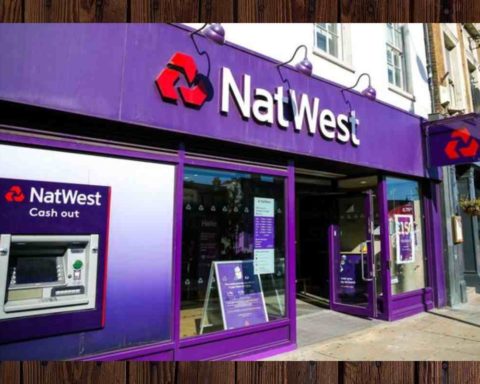Co-operative banks play an essential role in rural financing, with agriculture, livestock, milk, personal finance, self-employment, and the establishment of small-scale units among the few emphasis topics for urban and rural co-operative banks.
They give a much-needed alternative to the age-old exploitative practice of individuals seeking the local moneylender, often falling into a debt trap from which they struggle to escape.
The co-operative business banking system was established to encourage individuals to save and invest, particularly in rural areas of the nation. We felt it necessary to tell you more information regarding co-operative business banking.
What is Co-operative Bank in banking?
Small financial organizations known as co-operative banks serve urban and non-urban areas by providing access to various financing facilities for use by local small companies. The co-operative business banking has served its clients for over 145 years and offers various financial services, such as checking and savings accounts, loans, mortgages, and insurance.
The bank’s commercial banking division provides companies of varying sizes with checking and savings accounts, business loans, and merchant services, including different card acceptance options.
How do I open a business bank account with Co-operative Bank?
1. You must provide information like information about your company taxes, your anticipated revenue, and any funding you have received when you apply for a Co-operative business account:
2. To verify your identity, you must provide some ID, such as your passport or driver’s license, with a picture.
3. You must fulfill the requirements listed below to open a current business account with The Co-operative Bank:
- Run a limited business owned or managed by one person or work as a solo proprietor.
- Have attained the age of 18 or older.
- Possess a UK residence and a UK business address.
4. You won’t have individual voluntary agreements (IVAs) or county court judgments (CCJs) from the previous six years.
5. In the last six months, there will be no payment defaults on your credit report.
6. The Co-operative Bank business accounts could have different qualifying criteria.
7. For instance, obtaining an FSB account requires that you be a member of the Federation of Small Businesses.
8. Additional requirements must be met by any charities or organizations who wish to create a Community Directplus account:
9. Their credit turnover will be limited to £1 million.
10. They won’t make more than 5,000 check deposits or more than £100,000 cash to their account.
What is the difference between co-operative bank and commercial bank?
- Joint-stock banks are what we refer to as commercial banks. On the other hand, banks that are part of co-operatives are examples of co-operative organizations.
- The Banking Regulation Act serves as the primary legal framework for commercial banks. The Co-operative Societies Act of 1904 is the legislation governing co-operative banks.
- The Registrar of Co-operative Societies is responsible for formulating the regulations that co-operative banks must abide by.
- Compared to commercial banks, co-operative banks are limited in the breadth of financial services they may provide their customers.
- The size of co-operative banks is often on the lower end of the spectrum. The majority of co-operative banks solely use the unit-banking system. However, other co-operative banks have several branches, although their services are unavailable nationwide.
- Commercial banks provide most of the financing provided to industry, trade, and commerce on a short-term basis. This includes critical industries such as exports, etc.
Are co-operative banks public or private?
Banks that are part of the private sector include co-operative banks. The clients of a co-operative bank own the institution, and by the co-operative concept, each customer has an equal vote. Most of the time, co-operative banks are subject to banking and collaborative law regulations.
Is Co-operative Bank a company?
A financial institution known as a co-operative bank is an organization owned by its members, who also simultaneously serve as the bank’s clients and shareholders—the act of 1955 Relating to Banking Laws (Co-operative Societies).
What is the main objective of co-operative bank?
- To supply micro- and rural funding.
- To reduce the power held by those who lend money and those who act as middlemen.
- The purpose of this project is to provide financial services to agriculturalists as well as weaker parts of society at rates that are relatively more favorable.
- To offer small-scale companies financial support as well as personal financial services, aid with housing costs, and other similar services.
- To provide its members with the essential financial services they need.
- To encourage the general growth and improvement of rural communities.
How can I get a loan from Co-operative Bank?
You may apply for a loan if your company is qualified to do so by Email and Post; nevertheless, email is the preferred method for us to process your application promptly. Please read the product details and assess your company’s eligibility before applying for a co-operative business banking
loan. Download the application for the business loan if you think it would be a good fit for you, and then follow the instructions to submit your application.
How many co-operative banks are there in the UK?
Common types of current accounts in the United Kingdom include, but are not limited to:
Basic bank accounts
A Basic Bank Account provides you with the features you need for everyday banking without charging you a monthly fee. It’s ideal for people who may not be eligible for other current accounts.
Current accounts
A current account allows you to use a variety of banking services. A current account is a popular choice because it often does not have a monthly fee while still providing all of the features and benefits required for day-to-day banking.
Packaged Bank Account
A Packaged Bank Account is a current account that includes additional benefits in exchange for a monthly fee.
Student Account
A Student Account is comparable to a conventional current account, except it may have useful features for students in higher education.
Joint Bank Account
A Joint Bank Account is a bank account conveyed by two people. This can be used to manage shared finances with a partner, such as household bills and payments for shared expenses.
What are the benefits of co-operative bank?
- Access to formal banking is provided to the rural populations and non-banked sections of the country’s rural economy via the establishment of co-operative banks.
- It takes the place of the standard informal credit system formerly operated by money lenders, indigenous bankers, landlords, and other such figures.
- The government can more easily implement financial inclusion programs for economically vulnerable people with the assistance of co-operative banking institutions because these institutions deal directly with this population.
- Microfinance serves as an incentive for those living in rural areas to save money and make investments.
- Entrepreneurship and the growth of micro, small, and medium-sized enterprises are encouraged by providing financial and other forms of assistance when appropriate.
- It also encourages forming co-operative groups, collective borrowing, and other similar activities.
What are the main problems faced by the Co-operative Banks?
Here is a list of the main problems the co-operative business banking had to deal with.
Economy
The 2008 financial crisis’s drying up of the wholesale markets had no adverse effects on the Co-operative Bank. However, it has been impacted, along with other banks and building societies, by the protracted era of low-interest rates that followed, which has decreased net interest margins and profitability. Retained profits were a particularly significant potential source of extra capital due to the mutual structure of its parent.
The Controller
The Financial Services Authority mandated that all banks enhance both the amount and quality of their capital due to the financial crisis. The Regulator raised the entire capital requirement for the Bank from £1.9 billion to £3.4 billion between January 2009, immediately after the Co-operative Bank’s merger with Britannia, and January 2013. Near the conclusion of the time, the majority of the growth occurred.
The Merger
One of the leading causes of the Bank’s following problems was the August 2009 merger of the Co-operative Bank and the Britannia Building Society. The Co-operative Bank at the time was a little full-service bank with a high cost-to-income ratio, which resulted in low profitability.
Culture
Numerous aspects of the Bank’s culture led to the disaster. I’ve previously mentioned how poor risk management led to pursuing too many projects with insufficient management capabilities.
How safe is co-operative bank?
Co-operative business banking is the only high street bank in the United Kingdom to have a customer-led ethical policy written into the Bank’s articles of association. This makes the Co-operative Bank unique. 1992 was the year when the Ethical Policy was first implemented, and in 2013 it was included in the Bank’s constitution. The Bank does not provide its banking services to organizations with opinions that directly oppose those of its clients on a wide variety of topics.
Is there any Co-operative business banking app?
Yes, there is an app for Co-operative business banking. To use the app, download the “Business Bank” app offered by the Co-operative Bank from the relevant app store and follow the instructions on the screen. After validating your identification, you will be required to input your online banking customer ID and user ID followed by a code from your security token.
After this, you will be prompted to set a five-digit passcode that you will use to log in to the Business banking app. If your smartphone supports facial recognition and fingerprint unlocking, these methods will be available as additional options.
Conclusion
Co-operative banks are crucial for the efficient operation of the banking sector and play a crucial role in the execution of development initiatives. In the wake of several frauds, it is imperative to take the required steps to address the problem and increase public confidence and trust in the banking sector.









